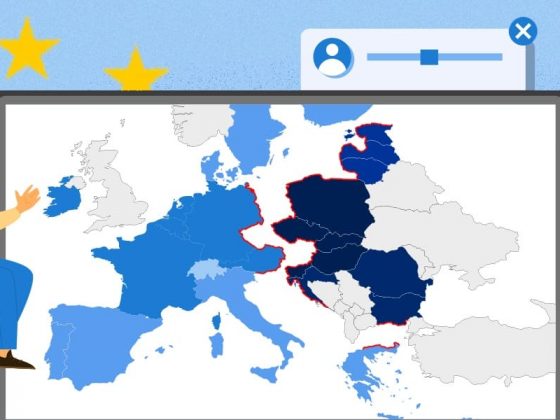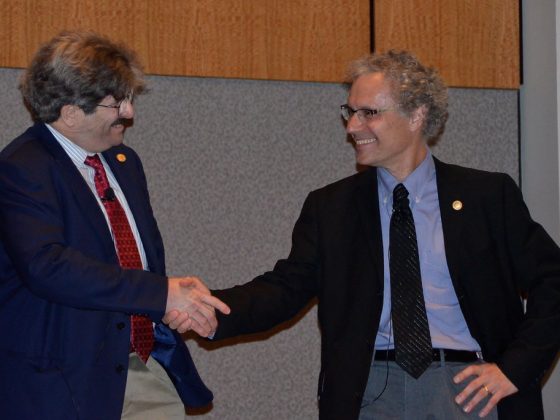The European Society for Medical Oncology (ESMO) is calling on the oncology community to commit to improving the wellbeing of the cancer workforce. In a paper published in ESMO Open, 10 September, ESMO outlines 11 actions to manage psychosocial risks, optimise wellbeing and reduce burnout, and provides evidence-based plans to address growing pressures.
“Too many people working in oncology experience burnout, and this has a knock-on effect for institutions and patients. We hope that the recommendations laid out for institutions, societies, and individuals will help shift attitudes and priorities within the oncology sector – reducing burnout of professionals, improving efficiency for hospitals and maintaining excellent patient care,” says Susana Banerjee, the corresponding author, who is a consultant medical oncologist at the Royal Marsden NHS Foundation Trust, London.
For health professionals working in oncology, burnout represents a significant issue due to the substantial cognitive, emotional and administrative demands of delivering highly complex cancer care. Burnout has been defined as ‘an occupational phenomenon resulting from chronic workplace stress that has not been successfully managed’. Manifestations include physical and/ or emotional exhaustion, cynicism, depersonalisation, and a low sense of professional accomplishment. “Critically, burnout can lead to chronic health problems including heart disease, stroke, obesity, and mental health conditions, which may result in decreased quality of care, loss of professional satisfaction, and reduced sense of accomplishment,” write the authors. Burnout, they add, can affect the ability to make optimal treatment decisions and impact patient care and clinician–patient relationships. It is also associated with increased staff turnover, reduced work hours, absenteeism, early retirement from clinical practice, and shortened life expectancy.
There are occupational factors integral to cancer care that can put oncologists at higher risk of burnout than other healthcare professionals. “These include constantly communicating with patients about life-changing treatment decisions, delivering bad news and supervising toxic therapies where often there is limited ability to prolong life substantially for many patients. In addition, there are pressures to keep at the forefront of scientific advances and deliver research at a time of reducing workforce and resources,” Banerjee tells Cancerworld.
The ESMO Resilience Task Force was established in December 2019 with a mandate to support the wellbeing of oncology professionals globally. In response to the Covid-19 pandemic, the Task Force conducted a series of three global surveys to evaluate the impact of challenges posed by Covid-19 on individual clinical practice, wellbeing, and burnout. The surveys, involving more than 3,700 responses from participants across more than 100 countries, found that up to 40% of participants felt at risk of poor wellbeing or distress, and up to 57% reported burnout. “The surveys revealed that Covid-19 added unprecedented pressures to healthcare professionals. There were alarming concerns regarding perception of lack of job control and job security, and access to personal and work-related support,” says Banerjee. In addition, the survey revealed that 38% of respondents were contemplating leaving the profession in future.
Following the three global surveys, a diverse multinational panel of 11 experts from the ESMO Resilience Task Force and ESMO Public Policy division was established. The panel, supported by occupational psychologists, policy analysts and administrative staff, was convened to establish a set of recommendations. “As health care systems continue to recover from the COVID-pandemic, the ESMO RTF [Resilience Task Force] aims to report on the lessons learned so far to support the well-being of oncology HCPs [healthcare professionals] now and in the future,” write the authors.
The eleven recommendations relate to three priority themes: providing high-quality information and training, safeguarding the physical and mental wellbeing of staff, and advocacy.
Recommendations: a summary
The panel delivered 11 recommendations on how to manage psychosocial risks, optimise wellbeing, and reduce burnout, which were focused around information and training, strategies and resources, and activism and advocacy.
High-quality information and training can help support the practice and developments of oncologists and cancer care
- Institutional management to communicate more effectively with employees, in particular to provide regular feedback and ensure employees feel valued in the workplace, as well as having opportunities to be involved in planning their work and having feedback mechanisms.
- Provide individualised career supervision and mentorship both within the workplace and externally. Young oncologists can access one-to-one mentorship online through the ESMO Virtual Mentorship Programme.
- Reinforce support in terms of training, career development, and job security. Findings from the surveys suggest that temporary or short-term contracts may be linked to financial insecurity, with evidence to suggest that financial insecurity is linked to burnout.
- Promote use of virtual strategies and other innovative solutions to improve access to flexible work arrangements and professional development opportunities. In the post pandemic era, virtual strategies may provide more equitable access to professional development opportunities.
Dedicated strategies and resources should be developed to safeguard the psychological and physical health of staff
- Ensure manageable workloads, including appropriate work hours and leave provision. There is a potential role for national and international medical societies to engage with institutions and governments to provide guidance on implementation of appropriate working hours, workload, and professional needs.
- Provide pleasant working environments with adequate wellbeing resources. Suggested priorities for effective working environments include: improved IT systems; sufficient IT support; reliable Wi-Fi; and access to laptops and teleconferencing software; as well as ergonomic furniture and access to outside spaces. Provision of refreshments and healthy meal choices, as well as group activities such as yoga, aerobic and gym classes, were suggested.
- Provide resilience training and invest in wellbeing support services. Provision of psychological resilience training is a key aspect in safeguarding the wellbeing of the workforce. Incorporating resilience training early in a clinician’s career, possibly at medical school, may be useful. It is essential for strategies to be in place to monitor the wellbeing of staff and the institutional culture should be regularly appraised to create a system that places staff welfare at the centre of quality healthcare provision.
- Invest in workforce retention and strategies to attract new colleagues. There is a need for decisive, long-term, and co-ordinated action by governments, national and professional organisations, and employers to address issues of recruitment and retention. High-quality oncology education at undergraduate, Masters, and MD-PhD level can help to direct medical students into oncology.
Activism and advocacy for the discipline of oncology and wellbeing of the workforce
- Establish tailored support measures to address the needs of different groups. ESMO has established several initiatives to support specific groups of colleagues who have been shown to have elevated risk of poor wellbeing, including the ESMO Women for Oncology Committee and ESMO Young Oncologists Committee. ESMO also recognises the importance of identifying and supporting other at-risk groups and seeks to collaborate with all at-risk colleagues through targeted initiatives.
- Provide support for management of personal wellbeing and resilience. A personal wellbeing toolkit, in the form of coping techniques, may help healthcare professionals support their own wellbeing and resilience. There is a need to destigmatise the requirement for support, with recognition that harnessing self-regulation including goal setting, and fostering emotional resilience, may impact on healthcare professionals’ ability to thrive in the working environment.
- Influence policy makers and stakeholders. International societies should engage with national groups to facilitate discussions at the local level with institutions and policy makers to drive positive change, e.g. limits on working hours, protected time for breaks during the day, and longer parental leave.
Failure to make these changes, warns Jean-Yves Blay, ESMO Director of Public Policy, would cause the quality of cancer care to deteriorate across Europe, associated with increasing medical nomadism, as high-income countries deplete the medical workforces of low- and middle-income countries. “All of these things could severely impact quality and equity of cancer care. These are not cosmetic measures; they are fundamental for the future of cancer care,” says Blay.
The first ESMO Resilience Task Force Workshop is being held 31 January to 1 February 2025 in Barcelona. The learning objectives include: understanding the mental health and wellbeing challenges faced by oncology professionals across Europe; identifying and analysing the contributing factors; and acquiring essential resilience skills for enhancing personal wellbeing. The deadline for applications is 6 October 2024.












